How To Know If Your Child Has Autism
WhatToGetMy Instructional Article
Disclaimer: We are not experts or medical professionals in this field. Our views on this subject are very much limited to what our research revealed. It should not replace your seeking a professional’s attention and opinion if you are worried that your child may be autistic.
- This article discusses autism and the symptoms of autism in children.
Understanding Autism.
Autistic disorder, or autism, is one of the conditions in the autism spectrum disorder (ASD). It is one of the types of developmental disability that affects both children and adults. It affects a child’s or adult’s social, behavioral, and communication abilities.
According to one 2018 survey seen on Statista, the larger ASD accounted for 2.5% of developmental disability in the U.S from 2015 to 2018. And according to another survey also seen on Statista, as of 2016, at least 18.5% of U.S. children suffered from one form of ASD or another.
Percentage of U.S. children aged 3-17 years ever diagnosed with a developmental disability as of 2015-2018, by condition. Source: Statista
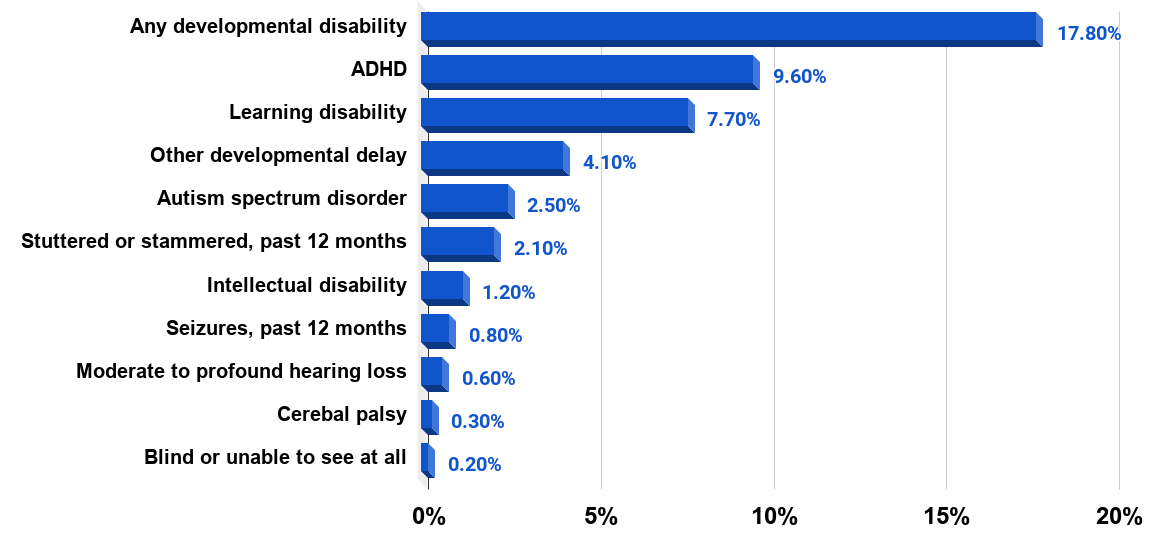
Rate of autism spectrum disorder among U.S. children from 2000 to 2016. Source: Statista
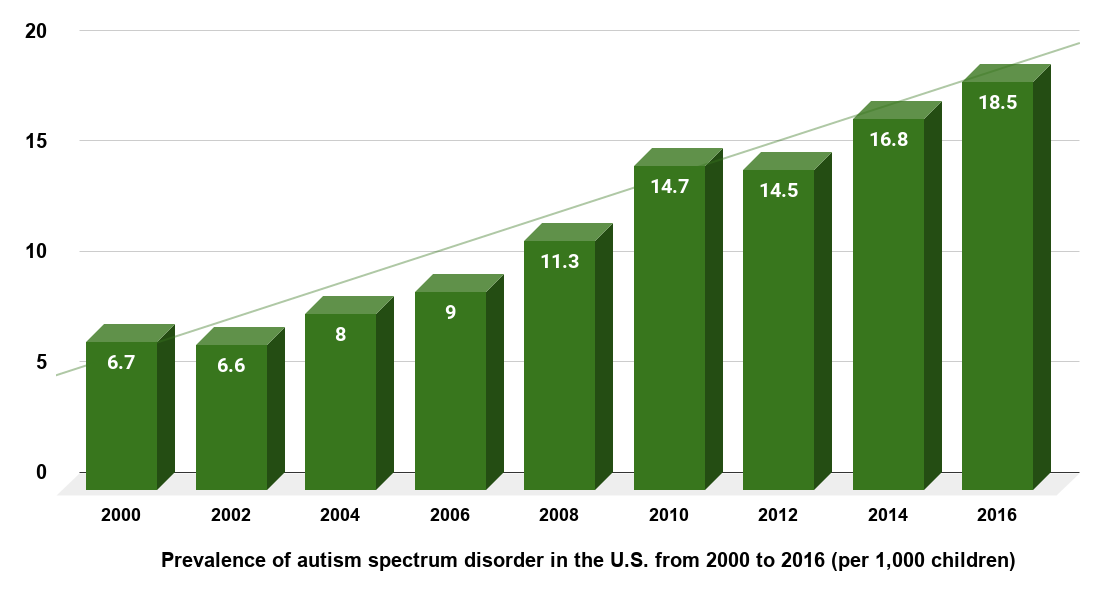
According to the Center for Disease Control (CDC), there is as yet no scientific or other knowledge or explanation for what specifically causes autism in both children and adults. There is still on-going research into the causes of autism. However, what is known at present is that the following factors contribute to a high risk of autism:
- Consumption of some antidepressants and drugs during pregnancy. Two of such drugs as seen on the CDC website, are valproic acid and thalidomide;
- Genetics are also said to have a role to play. The genes of the parents could affect the likelihood of their child having an ASD. It is also said that a child born in a family where there are other siblings with ASD, is at high risk of also having an ASD; and
- It has also been said that older parents are at risk of having a child with an ASD.
- It has also been pointed out that a child is at high risk of developing autism during pregnancy, before birth, and immediately after birth.
Vaccinating a child does not cause autism and that myth has been debunked by medical professionals. It is important to say this because a survey seen on Statista shows that as high as 46% of Americans as of 2019 were still unsure about whether vaccines cause autism.
Percentage of U.S. adults who thought certain vaccines cause autism in 2015 and 2019. Source: Statista
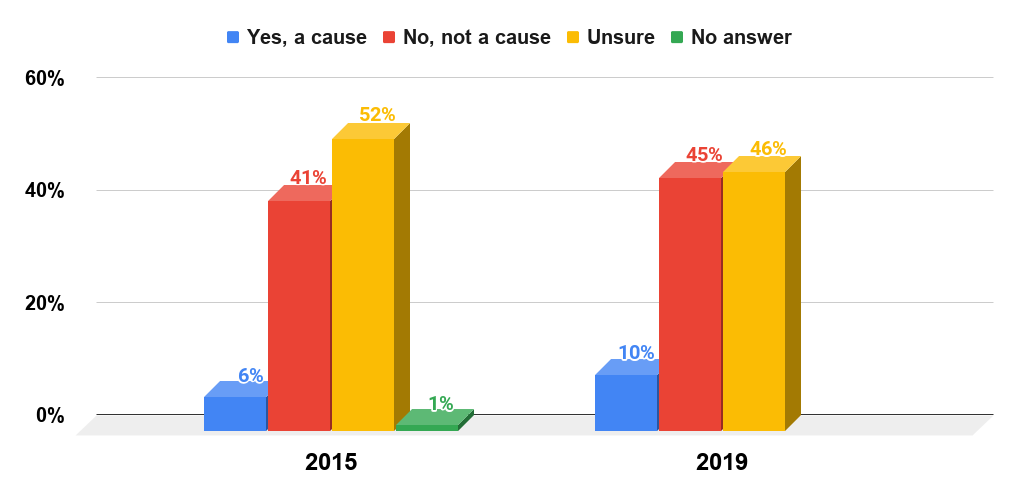
You can rest assured that it does not cause autism or any ASD. Vaccinating your child and doing so on time is in the best interests of your child’s growth and well-being.
Autism or ASD can have a severe impact on a child’s general well-being if not treated as early as possible. According to one survey seen on Statista, at least 31% of children with ASD have an IQ of 70 or less, while another survey also from Statista revealed that as much as 9% of children were chronically absent from school due to having an ASD.
Intellectual ability of children with autism spectrum disorder U.S. 2014. Source: Statista
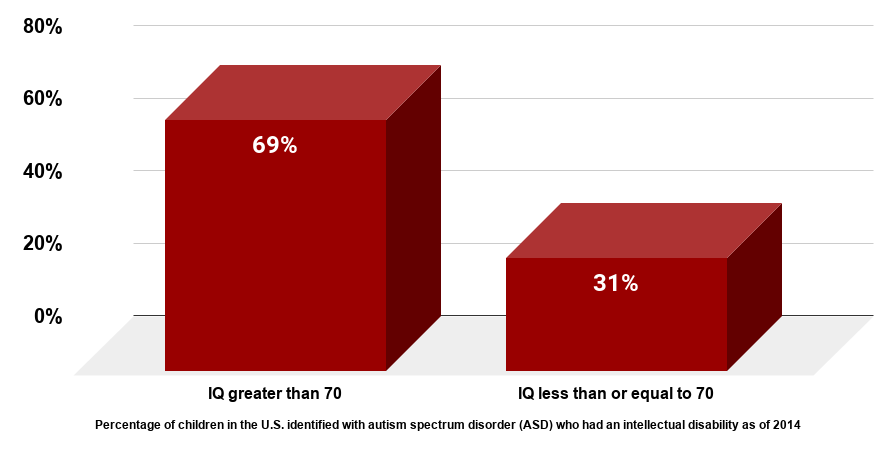
Prevalence of chronic school absenteeism among children aged 5 to 17 years with select developmental disabilities in the U.S. between 2014 and 2016. Source: Statista
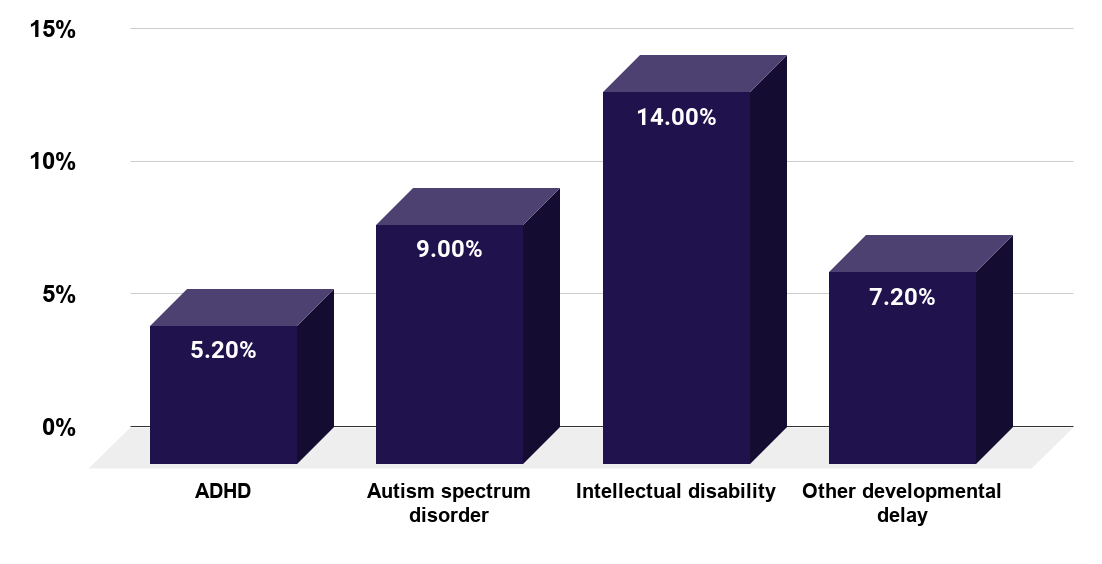
Having autism is however not the end of the world for either the child or adult who has it, and they can still lead full, enjoyable, and independent lives if treated properly and on time. Early detection is however key to helping a child successfully navigate a full and enjoyable life into adulthood, with ASD. In the next section, we discuss what our research revealed on the signs and symptoms of autism in children.
How do you know if your child has autism? How to know if a child is autistic.
Autism or any other ASD can be difficult to detect sometimes because it is not a terminal ailment that will show physically on a person. Given that it is a developmental disability, it is only picked up at a later stage once some cognitive and developmental challenges start to become very obvious.
This is why it is important as a parent to keep an eye on the growth and development of your child so that if you notice any worrying developmental lag in the growth of your child, you can immediately take it up with your child’s doctor.
In general, it has been shown that a child who is autistic will show some or all of these common signs of autism:
- Inability to point to objects or follow hand movements when another person points to an object. So, for example, an autistic child will not follow your hand movement if you point to a moving car.
- Slowness in speaking. Autistic children sometimes either do not speak at all especially at the milestone ages of 1 year when they should start speaking or saying more than two syllables. If your child started speaking but suddenly stopped, that is also a red flag for autism and you should immediately see your child’s doctor.
- They also do not feel other people’s pain or hurt. You could hit your feet against a rock for example in front of an autistic child (or adult) and they would not flinch or act as though they recognized you hurt yourself.
- They don’t like socializing with other children and prefer very much to keep to themselves.
- They can’t play games like peek-a-bo and take things like “break a leg” literally.
- They also find it difficult to express themselves in normal words.
- They can’t keep eye contact and oftentimes appear as though they can’t see or hear you when you speak to them.
- They don’t like being cuddled.
- They are obsessed with routine and would react very badly if you changed a routine they already adopted.
- They tend to be addicted to one thing.
- They tend to repeat words over and over again.
- Unusual and restless movements like rocking back and forth and flapping their hands.
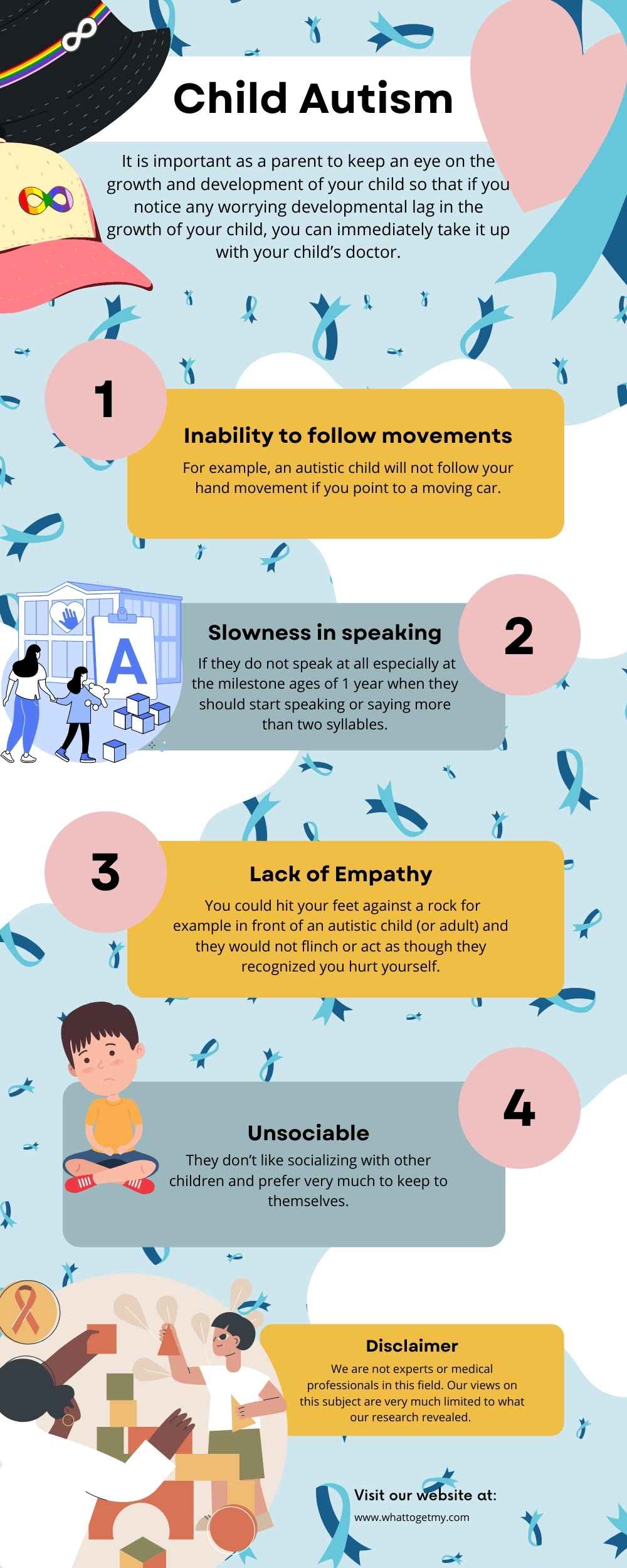
Source Link: https://whattogetmy.com/how-to-know-if-your-child-has-autism/
If you see any of these symptoms in your child at an early age, immediately seek the help of your child’s doctor. Point out your observations to him/her. If they tell you that you have nothing to be worried about and you are still not satisfied, seek a second and third opinion. Also, check out the early childhood system in your State’s public health offices for more help. The CDC’s website here has very useful information and contact numbers to call. Check it out and make use of them.
You would also like these related articles on Gifts for teenage autistic boy and Gifts for Asperger’s child.
Frequently Asked Questions.
1. What are the signs and symptoms of autism in toddlers?
It is not very easy to pick up autism symptoms in toddlers. It has been said that some autistic characteristics in toddlers are the following:
- He/she will not reach out to be carried;
- They would also not like being cuddled;
- Your toddler won’t look at you while being fed;
- He/she does not smile when being smiled at;
- They don’t make gestures such as waving goodbye and the likes;
- He/she does not follow your hand when you make a gesture;
- Would not notice or care if you hurt yourself;
- Finds it difficult to play with other toddlers;
- He/she does not make eye contact;
- If he/she does not respond to their name by the age of 1, this is a serious red flag.
- If they’re still not making any syllables by 16 months, this is another serious red flag.
2. What are the reasons for poor eye contact in toddlers?
Lack of eye contact in toddlers could be because they are autistic, or it could be because they have another developmental disability. The only way to know for sure if poor eye contact is not autism is to take them to see a children’s doctor and/or other specialists. You should however do so as soon as possible without further delay.
3. If not autism then what?
There are other developmental disabilities such as ADHD, Asperger’s, amongst others. To know if it is not autism but something else at play, it is best to consult a medical specialist immediately if you notice or feel that something isn’t quite alright.
Finally!
Remember, ASD is not a death sentence. Don’t lose heart in your unconditional love for your child. Keep spending more time with them. Your child will come out stronger. Your detecting it early is great and will help your child overcome this challenge. We have a helpful article on Activities for 2 year old autistic child which can help you with other helpful activities you can engage them with to help them with developmental exercises.
01 HOUR 18 MINUTES
ESTIMATED TIME DESIGNING AND UPLOADING THIS ARTICLE
07 HOURS 26 MINUTES
ESTIMATED TIME RESEARCHING AND WRITING THIS ARTICLE
You Might Also Like

Gifts for Children Who Love Animals
Children are crazy about animals. They are either completely obsessed or obsessed and also want to get a pet. Most parents avoid getting a pet by buying a lot of other animal-theme gifts and stuff. That’s smart, but not enough. If a child loves animals

Fitness Activities for Elementary Students
Top Fitness Activities For Elementary Students WhatToGetMy Instructional Article Are you a parent that is looking for elementary fitness activities that they can do at home? Do you feel like your kids don’t do enough activities at school or you are looking for something to
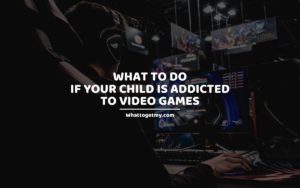
What to Do If Your Child is Addicted to Video Games
What to Do If Your Child is Addicted to Video Games WhatToGetMy Instructional Article First you will need to identify significant behavioral changes in your child resulting from video game content. Then you will have to monitor the amount of time your child is putting

11 Amazing Gifts for a Child With Asperger’s
Asperger’s syndrome is on the Autistic Spectrum Disorder (ASD) and therefore shares some of the same difficulties that people on the Autistic Spectrum face more especially when it comes to language. Most people with Asperger’s have difficulties in understanding and processing things that they hear
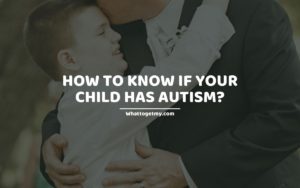
How To Know If Your Child Has Autism
How To Know If Your Child Has Autism WhatToGetMy Instructional Article Disclaimer: We are not experts or medical professionals in this field. Our views on this subject are very much limited to what our research revealed. It should not replace your seeking a professional’s attention

How Many Gifts Should a Child Get for a Birthday
How Many Gifts Should a Child Get for a Birthday WhatToGetMy Instructional Article Looking into the pile of gifts prepared for your child’s birthday gets you thinking: Is this over-excessive? Should you have stopped, like, ten gifts ago? Are there any rules you should follow

Unique Soccer Gifts for Children
If you have a young soccer fan in your family, you probably want to give him or her a themed gift. Most parents and family members opt for soccer balls, which is a great gift, but you might want to be cooler than that. Kids


